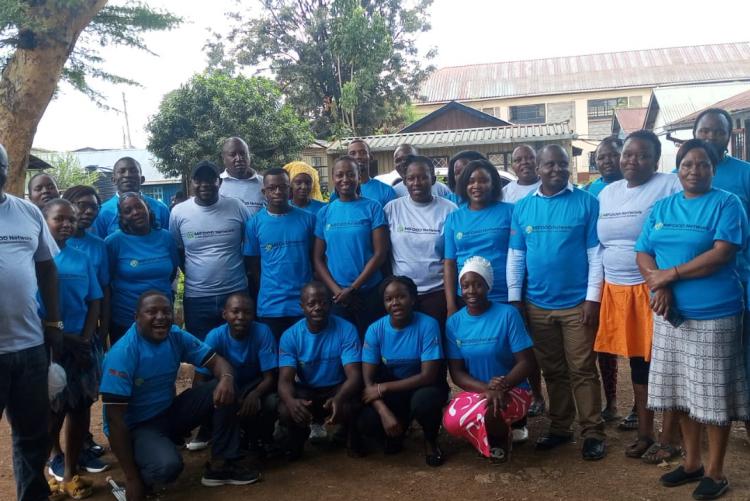The University of Nairobi MiFOOD project has kicked off in the informal settlements in Nairobi. The MiFood project intends to investigate the impact of COVID-19 containment measures on women informal food vendors in Nairobi’s urban informal settlements. The project is funded by the Social Sciences and Humanities Research Council of Canada (SSHRC).
This project intends to investigate the impact of COVID-19 containment measures on women informal food vendors in Nairobi’s urban informal settlements. Although the feminization of the informal food sector has been recognized, its gendered dimensions, especially during the COVID-19 pandemic have not been fully grasped and researched. The negative economic, health-related and food security impacts and challenges of COVID-19 have been most intensely felt by women employed and self-employed in the informal food sector. Furthermore, women carried a different kind of burden from the COVID-19 pandemic. COVID-19 deprived people of sources of income and led to the closure of businesses, vending sites and market places, and women were among the worst affected.
The objectives are:
- To establish the characteristics of informal food vending enterprises operated by women in Nairobi’s informal settlements.
- To examine the opportunities and challenges of women’s informal food enterprises in Nairobi’s informal settlements.
- To investigate the impacts of COVID-19 on women informal food enterprises, as well on their households’ health and well-being.
- To determine the coping strategies adopted by women informal food vendors during the COVID-19 pandemic.
- To assess the governance and gendered dynamics of informal food vending.V
The project team members are Samuel Owuor, Stella Mukhovi, Veronica Mwangi, Teresa Mbatia, Kathleen Anangwe and John Oredo.

